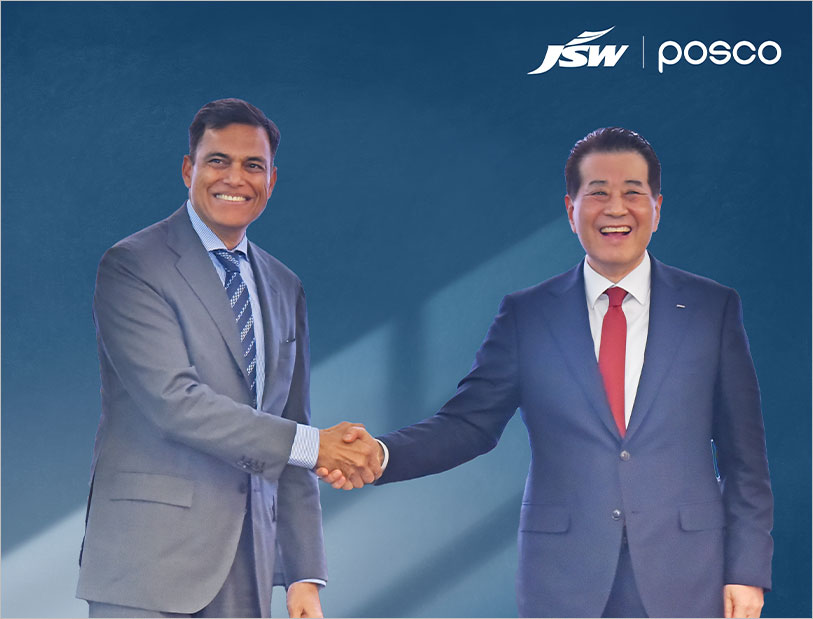India’s JSW Steel and South Korea’s POSCO Group have signed a non-binding agreement to explore a 50:50 joint venture for a 6 million tons per annum (MTPA) integrated steel plant, in what could become one of the largest foreign collaborations in India’s metals sector as demand for “green steel” accelerates.
The proposed facility, estimated by analysts to cost about ₹60,000 crore ($7.2 billion), is likely to be located in Odisha, a mineral-rich eastern state offering proximity to iron ore reserves and port access. A detailed feasibility study is underway.
The tie-up comes as India’s steel industry faces mounting pressure to decarbonize. A report by EY-Parthenon this week projected that the country’s demand for green steel — currently negligible — will rise to 179 million tons by 2050, driven by automotive, infrastructure and construction sectors seeking sustainable inputs.
“What once felt like a nice-to-have for sustainability is fast turning into a business must-have,” said Kapil Bansal, Partner for Energy Transition and Decarbonization at EY-Parthenon. He said costs for low-carbon steel, which today carry a premium, are expected to decline significantly over time.
At the same time, carbon costs are set to erode the competitiveness of traditional steel. Without large-scale decarbonization, Indian steel exports to the European Union could face additional levies of about ₹19,277 crore ($2.3 billion) by 2030 under Brussels’ Carbon Border Adjustment Mechanism (CBAM), the report warned.
Strategic calculus
JSW Steel, India’s largest steelmaker by capacity, sees the venture as reinforcing both its growth strategy and New Delhi’s “Atmanirbhar Bharat” (self-reliant India) agenda.
“This partnership brings together JSW’s proven execution capabilities and strong domestic footprint with POSCO’s technological leadership in steelmaking,” said Jayant Acharya, joint managing director and CEO of JSW Steel. “It positions us to deliver on India’s twin objectives of industrial expansion and climate action.”
POSCO, one of the world’s most technologically advanced steelmakers, is betting on India as a long-term demand hub. “India is central to the future of global steel demand. Our collaboration with JSW is based on mutual trust and a shared long-term vision,” said Lee Ju-tae, representative director and president of POSCO Holdings.
While the deal remains preliminary, analysts say it reflects the broader recalibration of India’s steel industry toward sustainability. If completed, the JSW-POSCO venture would not only create one of India’s largest single-site integrated steel plants but could also set benchmarks for low-carbon production in Asia.
The project, however, will hinge on regulatory approvals, the pace of technology adoption, and the ability to manage cost competitiveness in a market where traditional steel still dominates.






